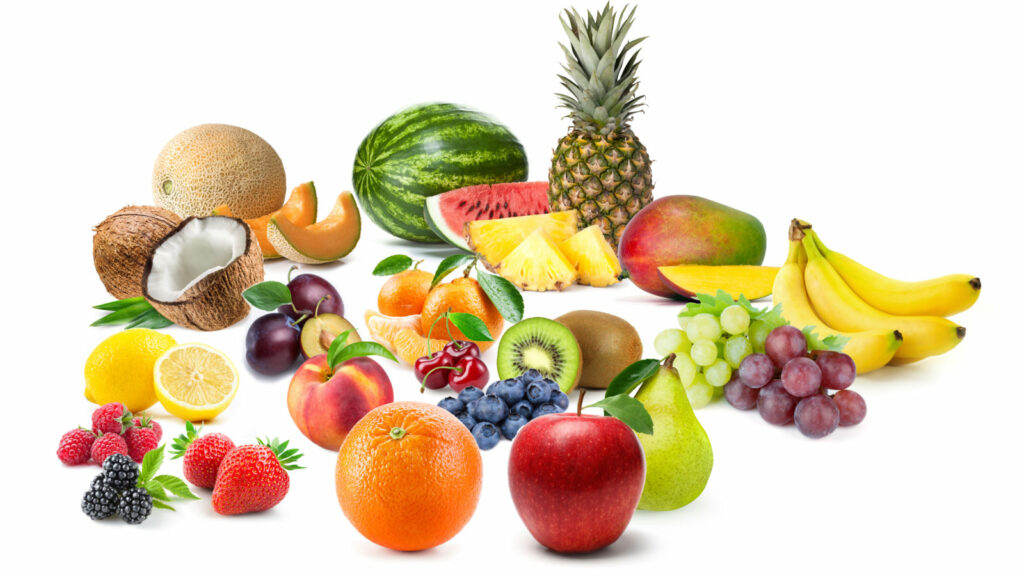One of the main principles of a low-carb diet is to minimize the intake of carbohydrates, particularly those that are high in sugar and starch. Since fruits are known to be a natural source of carbohydrates, it raises the question: can you eat fruit on a low-carb diet? The answer is not a simple yes or no, as it depends on various factors. In this comprehensive guide, we will explore the considerations and guidelines for including fruits in a low-carb diet.
Understanding Carbohydrates in Fruits:
Fruits contain natural sugars in the form of fructose, which is a type of carbohydrate. The carbohydrate content of fruits can vary significantly, with some fruits being higher in carbs than others. For instance, tropical fruits like bananas, pineapples, and mangos tend to have higher sugar content compared to berries such as strawberries, raspberries, and blackberries. It is essential to consider the specific types of fruits you are consuming when following a low-carb diet.
Total Carbohydrate Limit:
One of the key factors to consider when determining whether you can eat fruits on a low-carb diet is your daily carbohydrate limit. Different low-carb diets may have varying recommendations for carbohydrate intake, but typically, they aim to restrict carbohydrate consumption to a certain range, often around 20-100 grams per day. If you have a strict carbohydrate limit on your low-carb diet, it may be necessary to moderate your fruit consumption accordingly.
Net Carbohydrates and Fiber Content:
When calculating the carbohydrate content of fruits for a low-carb diet, it is common to subtract the fiber content from the total carbohydrates to determine the net carbohydrates. Fiber is a type of carbohydrate that is not digested by the body and does not significantly impact blood sugar levels. Fruits that are high in fiber, such as berries and avocados, tend to have a lower net carbohydrate content, making them more suitable for a low-carb diet.
Glycemic Load and Blood Sugar Impact:
Another important consideration is the glycemic load of fruits. The glycemic load takes into account both the carbohydrate content and the effect of carbohydrates on blood sugar levels. Fruits with a high glycemic load can cause a rapid increase in blood sugar levels, which is generally undesirable on a low-carb diet. To minimize blood sugar impact, it is advisable to choose fruits with a lower glycemic load, such as berries, cherries, and apples, while avoiding high-sugar fruits like bananas and grapes.
Portion Control and Moderation:
Even if you choose fruits that are relatively low in carbohydrates and have a favorable impact on blood sugar levels, portion control is still crucial. While fruits are natural and nutritious, consuming them excessively can still contribute to a higher carbohydrate intake, hindering your progress on a low-carb diet. It is recommended to moderate your fruit consumption and spread it throughout the day, rather than consuming large quantities in a single sitting.
Prioritizing Nutrient Density:
In addition to their carbohydrate content, it is essential to consider the overall nutrient density of fruits when including them in a low-carb diet. Fruits are rich in various vitamins, minerals, antioxidants, and dietary fiber, which are beneficial for overall health. While some low-carb diets advocate for minimizing fruit intake, others emphasize the importance of nutrient-dense food sources. If you choose to include fruits in your low-carb diet, focus on nutrient-dense options like berries, which provide numerous health benefits.
Personalization and Individual Differences:
It is crucial to recognize that everyone’s nutritional needs and tolerances may vary. Some individuals may find that they can tolerate moderate fruit consumption on a low-carb diet, while others may need to limit or exclude fruits altogether to achieve their goals. Factors such as metabolic health, insulin sensitivity, weight loss objectives, and personal preferences should be considered when determining the suitability of fruits in a low-carb diet. Experimentation and self-awareness are key to finding the approach that works best for you.
Consultation with a Healthcare Professional:
If you have specific health conditions, such as diabetes or metabolic disorders, it is highly recommended to consult with a healthcare professional or registered dietitian before making any significant changes to your diet. They can provide personalized advice based on your health status and help you make informed decisions about including fruits in your low-carb diet.
In conclusion, the question of whether you can eat fruit on a low-carb diet depends on several factors. It is possible to include fruits in a low-carb diet by choosing those that are lower in carbohydrates, have a favorable impact on blood sugar levels, and practicing portion control. Prioritizing nutrient-dense options and personalizing your approach based on individual needs are also essential. Remember, there is no one-size-fits-all answer, so it’s crucial to listen to your body and seek guidance from healthcare professionals when needed.
- What are the Best THC-O Disposable Vape - July 24, 2023
- Can You Eat Fruit on a Low-Carb Diet? It Depends - July 18, 2023
- CBD Information: Who Can You Trust? - June 26, 2023

